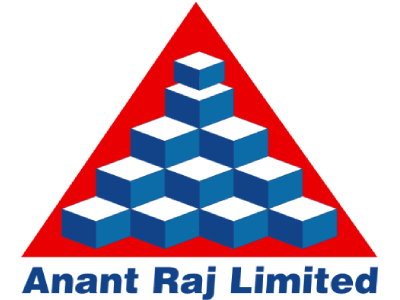Your cart is currently empty!
SEBI(LODR)
SEBI ( LODR )
SEBI stands for the Securities and Exchange Board of India. It is the regulatory body for the securities market in India. SEBI was established in 1988 as an autonomous body under the provisions of the SEBI Act, 1992. The primary objective of SEBI is to protect the interests of investors and promote the development and regulation of the securities market in India.
- Core Investment Company
- Alternative Investment Fund Registration
- Foreign Portfolio Investor Registration
- Asset Management Company
- Mergers and Acquisitions
- Merger and Amalgamation
- Rights Issue
- Public Issues
Free Call Back by our Expert
Its key functions include
Regulation and Oversight: SEBI regulates various entities in the securities market, including stock exchanges, brokers, depositories, mutual funds, and other intermediaries. It formulates rules, regulations, and guidelines to govern the functioning of these entities and ensures compliance with the established norms.
Investor Protection: SEBI is committed to safeguarding the interests of investors by promoting fair practices and preventing fraudulent activities. It establishes rules and regulations for market participants to ensure transparency, disclosure, and accountability. SEBI also takes measures to educate investors and enhance their awareness about investing in securities.
Market Development: SEBI plays an active role in the development of the securities market in India. It introduces reforms, policies, and initiatives to encourage market growth, attract investments, and enhance market efficiency. SEBI also encourages innovation and new product development in the market while maintaining investor protection.
Supervision and Surveillance: SEBI maintains a robust system for supervision and surveillance of market activities. It monitors trading, price movements, and market manipulations to detect any irregularities or insider trading. SEBI has the authority to investigate and take appropriate enforcement actions against entities involved in market misconduct.
Regulation of Securities Issuance: SEBI regulates the issuance of securities in the primary market, including initial public offerings (IPOs) and follow-on public offers (FPOs). It ensures that issuers comply with disclosure requirements, provides necessary information to investors, and facilitates fair pricing of securities.
Investor Education and Awareness: SEBI promotes investor education and awareness through various initiatives, including seminars, workshops, and campaigns. It aims to empower investors with knowledge and information to make informed investment decisions and protect themselves from fraudulent schemes.
The website mentioned (https://msaprofessional.com/sebilodr/) appears to provide services related to SEBI’s Listing Obligations and Disclosure Requirements (LODR) regulations. These regulations govern the listing and disclosure requirements for companies listed on Indian stock exchanges. Service providers like MSA Professional may assist companies in complying with these requirements and ensuring adherence to SEBI’s regulations.
In conclusion, SEBI plays a critical role in regulating and overseeing the securities market in India. It works towards investor protection, market development, and the establishment of fair practices. SEBI’s efforts aim to foster a transparent and efficient securities market that attracts investments and protects the interests of investors.
The registration process with the Securities and Exchange Board of India (SEBI) is crucial for entities operating in the securities market in India. SEBI is the regulatory authority responsible for overseeing and regulating the securities market to protect the interests of investors and ensure fair practices. The registration process with SEBI varies depending on the type of entity or intermediary seeking registration. Here’s an overview of the registration process for different entities under SEBI:
Stockbrokers and Sub-Brokers: Entities seeking to operate as stockbrokers or sub-brokers in the securities market need to apply for registration with SEBI. The application process involves submitting the necessary documents, including the Memorandum and Articles of Association, details of directors, financial statements, and other required information. After scrutiny and verification, SEBI grants the registration.
Portfolio Managers: Portfolio managers, who manage investment portfolios on behalf of clients, need to obtain registration from SEBI. The registration process involves submitting the application, along with required documents such as the business plan, investment strategies, financials, and details of key personnel. SEBI assesses the application and grants registration if all requirements are met.
Mutual Funds: Mutual funds looking to operate in India must obtain registration from SEBI. The process includes submitting the application, fund documents, investment objectives, and compliance with SEBI regulations for mutual funds. SEBI reviews the application and grants registration if all conditions are fulfilled.
Depository Participants: Entities seeking to provide depository services in India as depository participants must apply for registration with SEBI. The registration process involves submitting the application, along with details of the entity’s operations, financials, and infrastructure. SEBI assesses the application and grants registration upon fulfillment of requirements.
Credit Rating Agencies: Credit rating agencies that assess the creditworthiness of issuers and their instruments must register with SEBI. The application process involves submission of required documents, including infrastructure and manpower details, rating methodologies, and compliance with SEBI regulations.
Venture Capital Funds: Venture capital funds need to obtain registration with SEBI to operate as venture capital investors in India. The registration process includes submission of the application, fund details, investment strategies, and compliance with SEBI regulations for venture capital funds.
Collective Investment Schemes: Entities operating collective investment schemes, such as Alternative Investment Funds (AIFs), need to register with SEBI. The registration process involves submitting the application, fund documents, investment objectives, and compliance with SEBI regulations for collective investment schemes.
It’s important to note that the registration process with SEBI is complex and involves meeting specific regulatory requirements. Applicants need to comply with SEBI’s regulations and guidelines to ensure a successful registration. Seeking professional advice and guidance is advisable to navigate the registration process smoothly.
Customer Reviews
VITIKA MAKAJI
Trademark Objection
- Verified Customer
04 May 2023
Good follow up.
SWETHA D
DIN eKYC Filing
- Verified Customer
12 May 2023
Goood
HARIHARAVIJITHA M
Trademark Registration
- Verified Customer
04 May 2023
nice
VITIKA MAKAJI
Trademark Objection
- Verified Customer
04 May 2023
Good follow up.
Our Clients







